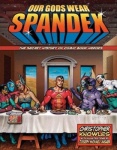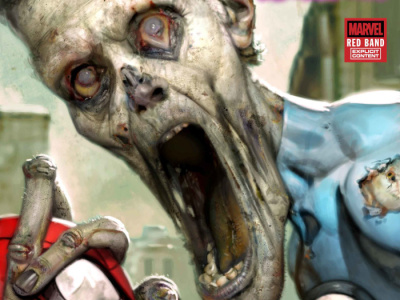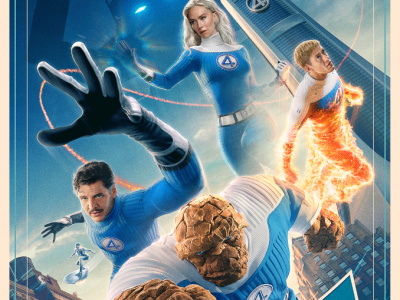
Confessions of a Comic Book Guy is a weekly column by retailer Steve Bennett of Mary Alice Wilson's Dark Star Books in
Seeing as how it's supposedly a sign of the coming apocalypse for comic book shops I decided to visit the Marvel Digital Comics Unlimited site - though to be honest what really prompted the trip was a piece on the DCU that ran in the L.A. Times that claimed they had Golden Age comics. And they do, sort of, though it seems to me having only two issues of the Captain America and Sub-Mariner series from the 40's is a tad short-sighted given their historical significance.
But a lot of what I saw there seemed myopic. Take the price breaks being offered for a completely untested service; if you want to pay $4.99 a month (as opposed to $9.99) you have to pay a year in advance -- that's $59.99 upfront. In a previous column I wrote that price really wasn't out of line for a kid's Christmas or birthday present these days, but neither is it an impulse purchase. Giving customers the option of a one time, one week trial subscription seems only fair.
You have to wonder how they justify these kind of prices, given just how little the whole thing is likely to be costing Marvel; I mean, it's not like they're profit-sharing with the creators of the comics (supposedly at least until the site proves profitable). I hate being reasonable but this sort of 'we don't have to treat our people any better than we absolutely have to' approach to business seems completely counterproductive. Especially when establishing some sort of (undoubtedly) small percentage for the writers and artists would be a goodwill gesture that would cost the company absolutely nothing -- if in fact Marvel's DCU is unsuccessful.
It's recently occurred to me the reason I've spent so many of these columns ruminating over the nature of superheroes is because I've reached the summing up portion of my life and have begun to wonder whether 'they' weren't right all along -- that superheroes really are just for kids and arrested development cases with father issues (a category in which I myself am most profoundly damaged). Was I kidding myself all this time that superheroes had some kind of greater 'meaning' to them or, as Zippy the Pinhead creator Bill Griffith would be happy to tell me, have I just been wasting my life?
So in my defense I would like to ask that Our Gods Wear Spandex by Christopher Knowles, the best book on the subject I've read since Gerard Jones' landmark Men of Tomorrow be placed into evidence as Plaintiff's Exhibit A. Comprehensive to a dizzying degree, even those who consider themselves armchair experts on the history of comics (guilty) will find they have a lot to learn as the text moves from Ancient Egypt to 19th century British mystic secret societies.
Chapter after chapter, Knowles meticulously builds a case for his thesis that superheroes are essentially pagan gods redressed for modern times. I've always believed the conventional wisdom that the rise and fall of the popularity of superheroes every other generation or so was due to the fact that their readership periodically outgrows them, but Knowles has an alternative theory. He believes that like the gods they're based on, superheroes come when called, invariably during the times we need them most (during World War II, the Cold War, etc.) and directly attributes their current revival to the events of 9/11. Although I'm not exactly sure I'm ready to sign up to his hypothesis, Our Gods Wear Spandex is proof that in our fearful rush to appear 'grown up' we've forgotten just what superheroes represent and how important they are to who we are and what we wish we were.
If there was any doubt I'm trying to work out what I think about all this as I go along here's another piece of evidence: I've been pretty blatant about my disappointment that (so far anyway) superheroes have been benched during the current War on Terror as opposed to the more active role they took during World War II. But as I was putting together a Christmas display of DC Archives for Dark Star I stopped to leaf through a volume of All Star Comics that had an introduction by Roy Thomas.
In it he suggests the reason why (except for some iconic covers) most DC heroes stopped fighting the Axis directly was because it had become clear that like with the movies of the time audiences (especially GI's overseas) wanted escape from the war more than they wanted to see idealized versions of themselves fighting it for them.
Leading me to think that just maybe those who serve as a diversion also serve, or something; like I said, I'm still trying to work this out. If I come up with anything better I'll let you know.
The opinions expressed in this column are solely those of the writer, and do not necessarily reflect the views of the editorial staff of ICv2.com.







